Student practice is more efficient when they know exactly what they’re working towards. Piano practice targets and goals can help make that clearer.
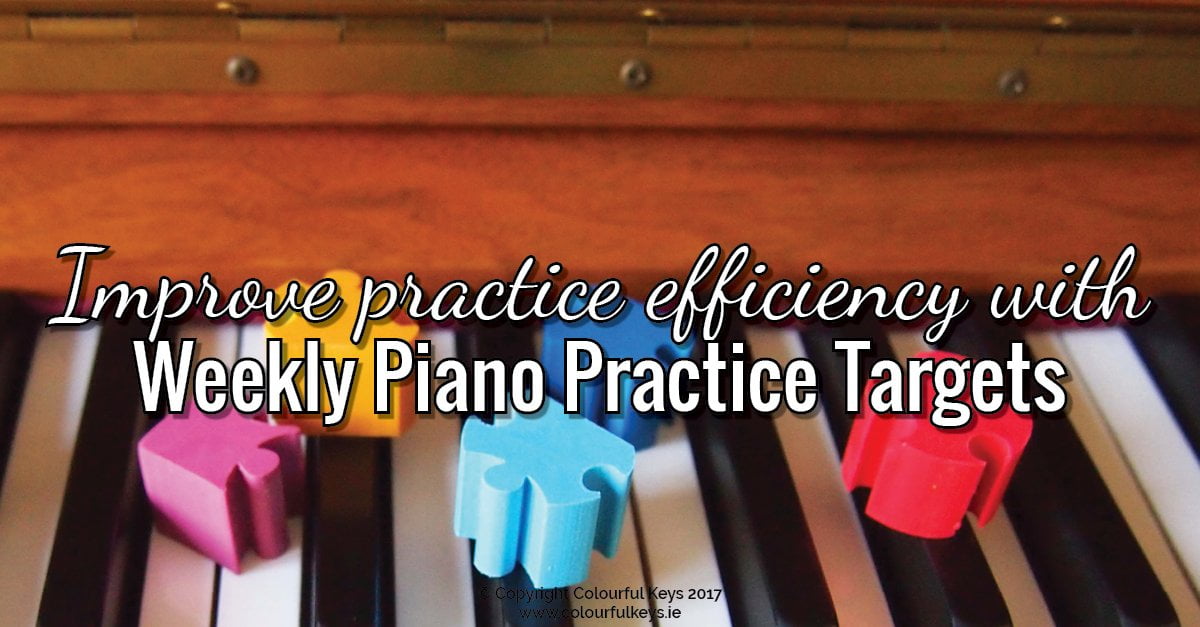
We don’t want our students to be wandering aimlessly during their practice time. We want them focussed on the end result.
This is one of the reasons why I don’t advocate minimum practice times or minimum repetitions. I think those get in the way of students developing good practice skills.
Piano practice targets on the other hand keep them focussed on getting better. And that’s the whole point, right?
Setting Overarching Goals
To set targets, we need to talk about goals first.
Goals are what I call the big things you and your student want to achieve, the long term objectives of piano studies.
Knowing these goals informs everything else you do, but sometimes I think we accept the “standard” curriculum instead of starting with a blank slate and designing the goals for your studio and your students.
This is about you knowing what you want for your students generally, and about you listening to what each of your students wants specifically too.
Your Studio Wide Goals
For example, maybe you want all your students:
- To play music for their whole lives
- To feel confident collaborating with other musicians
- To have a great appreciation for the music they listen to because of their understanding of music theory
Maybe that’s not it at all for you! But whatever your overarching whys are – make sure you know them and can articulate them to yourself.
Based on these goals, you might make smaller specific goals for all your students for the next 2 years, 6 months or 3 weeks.
Your Student’s Goals
On top of your ideas for your studio, you need to know what each student wants too.
Piano is an elective, an extra, so there must be a reason that they’re there. Something they want from their lessons.
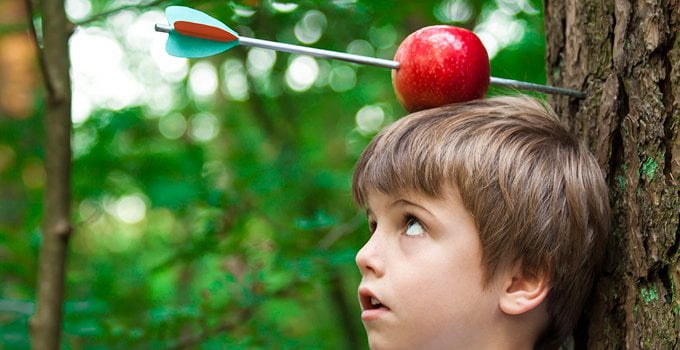
How you will go about this will depend on age of course. For your very young students this might mean simply giving them some input on some of the piece selections.
But I believe as students get older they should have more and more control over what they’re learning. Teen and adult students should decide the destinations.
You know best which routes will get them there, and what extra tools they need along the way. But it’s their journey.

Subscribe to updates and get the Target Setting Worksheet.
Enter your details to subscribe to the newsletter for piano teachers with information, tips and offers.
I hate spam as much as you do! I'll only send you information that's directly relevant to music teachers and you can unsubscribe at any time.
Vibrant Music Teaching members, you can access this resource inside the VMT library. Not a member yet? Find out more about becoming a member here.
Creating Weekly Practice Targets
Once you know your goals, giant, big, medium and small; you can plan your weekly targets towards those goals.
The most important thing to bear in mind when setting titles is that you must be able to say yes or no to whether it was achieved next week.
Piano practice targets have to be specific and measureable, otherwise there’s no point setting them.
Here’s some examples of some pretty useless targets:
- Get better at the Sonatina
- Play the G major scale faster
- Learn the right hand of Boogie
And this is how I would fix them:
- Get better at the Sonatina Be able to play the Sonatina from start to finish without going back or restarting sections
- Play the G major scale faster Play the G major scale hands together similar motion at 120bpm
- Learn the right hand of Boogie Memorise the right hand of Boogie with all the correct fingerings
Get the idea?
Good targets lead to clear-cut questions: Can you play this at 120bpm or not? Yes or no?
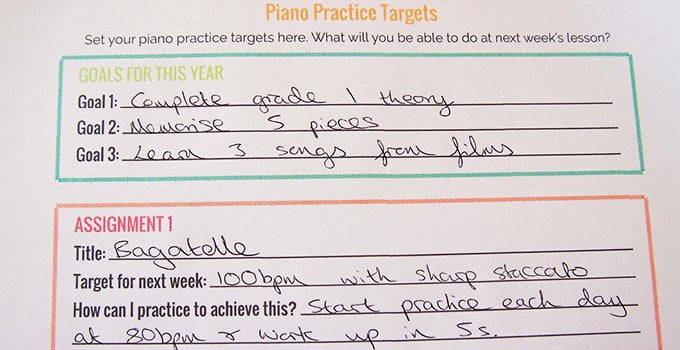
Student Led Piano Practice Targets
Don’t decide the piano practice targets for your students. It’s important that your students themselves decide what the targets are.
You can help guide them with questions and suggestions, but the final target must be their own decision.
Sure, they’ll make some mistakes and set some unrealistic expectations – but they will learn a lot from that process.
Get the Piano Practice Targets Worksheet
Grab my free piano practice target worksheet to make it simple to set these targets in your studio.

Subscribe to updates and get the Target Setting Worksheet.
Enter your details to subscribe to the newsletter for piano teachers with information, tips and offers.
I hate spam as much as you do! I'll only send you information that's directly relevant to music teachers and you can unsubscribe at any time.
Vibrant Music Teaching members, you can access this resource inside the VMT library. Not a member yet? Find out more about becoming a member here.
Do you like this idea of targets and goals?
Perhaps you’ve tried this kind of process in your studio, how did it go? I’d love to hear what you think in the Vibrant Music Studio Teachers community on Facebook or in the comments below.
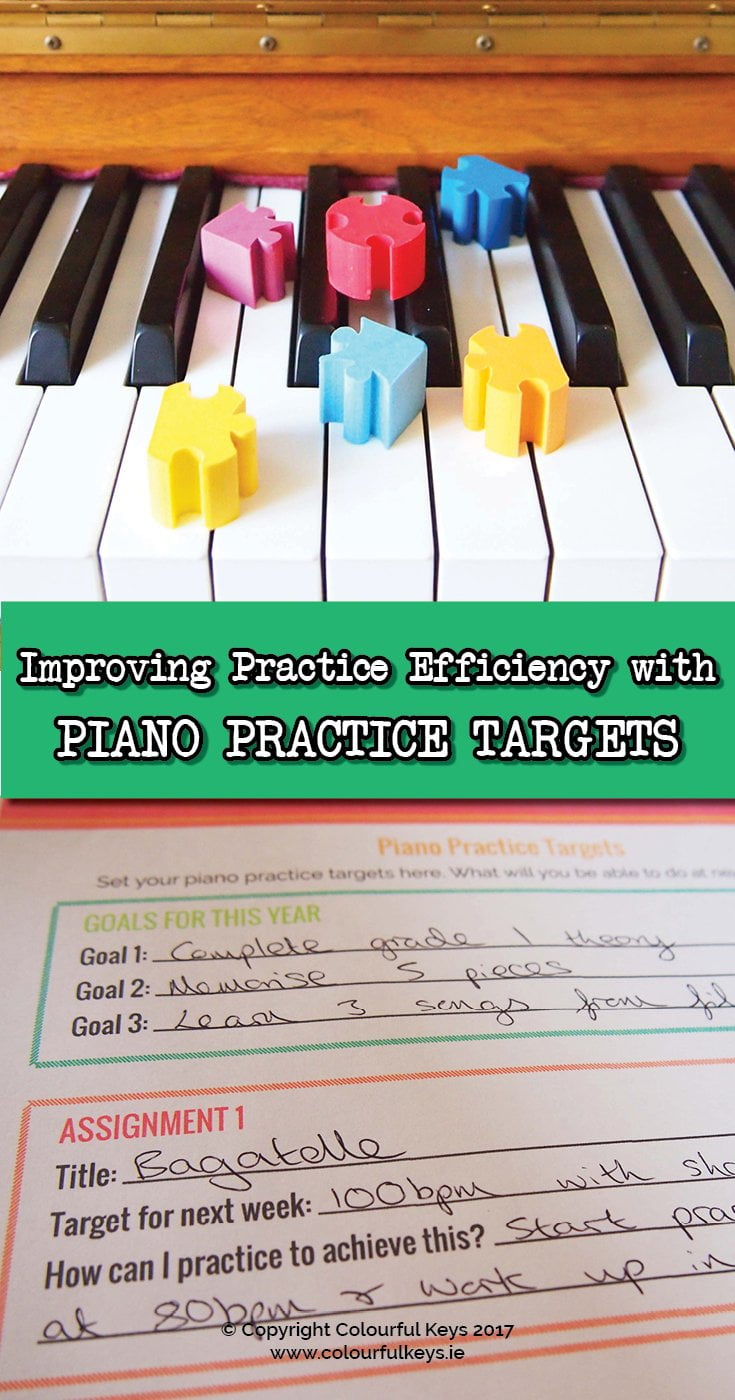
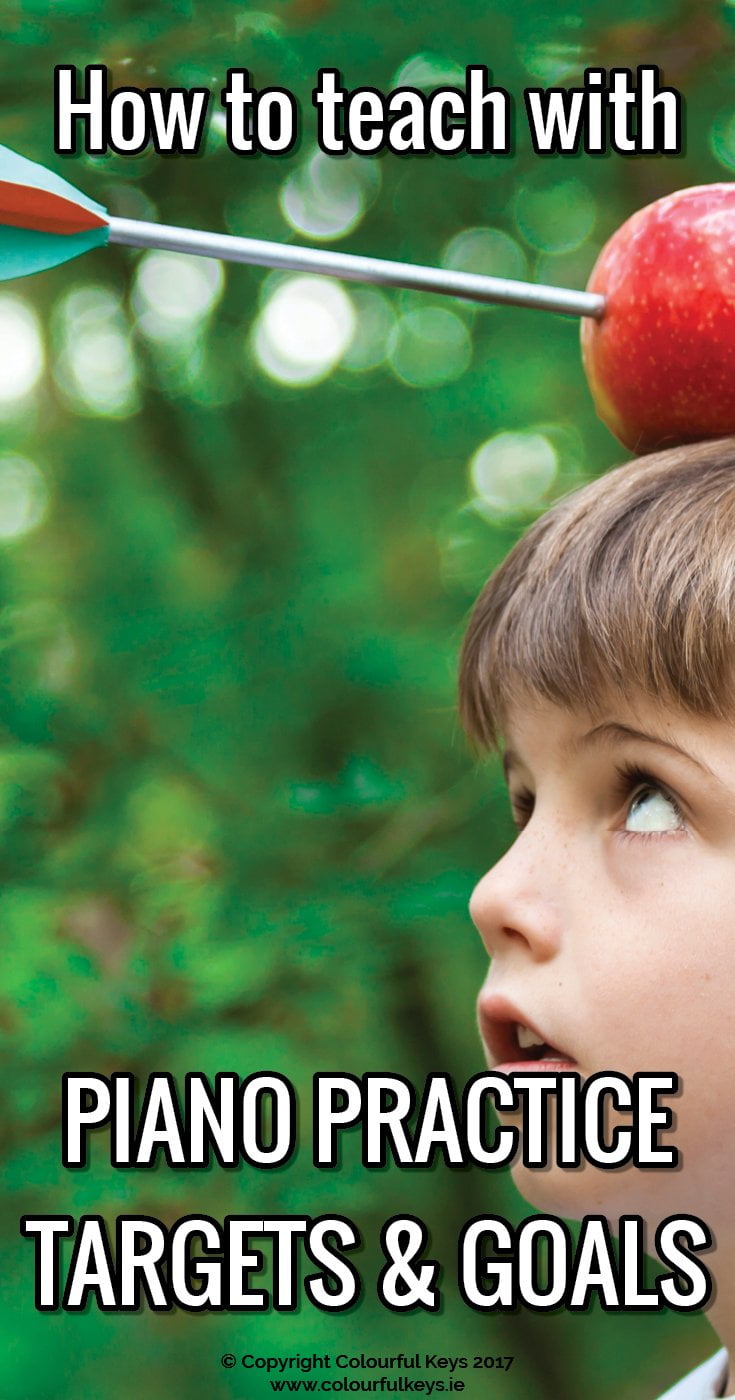
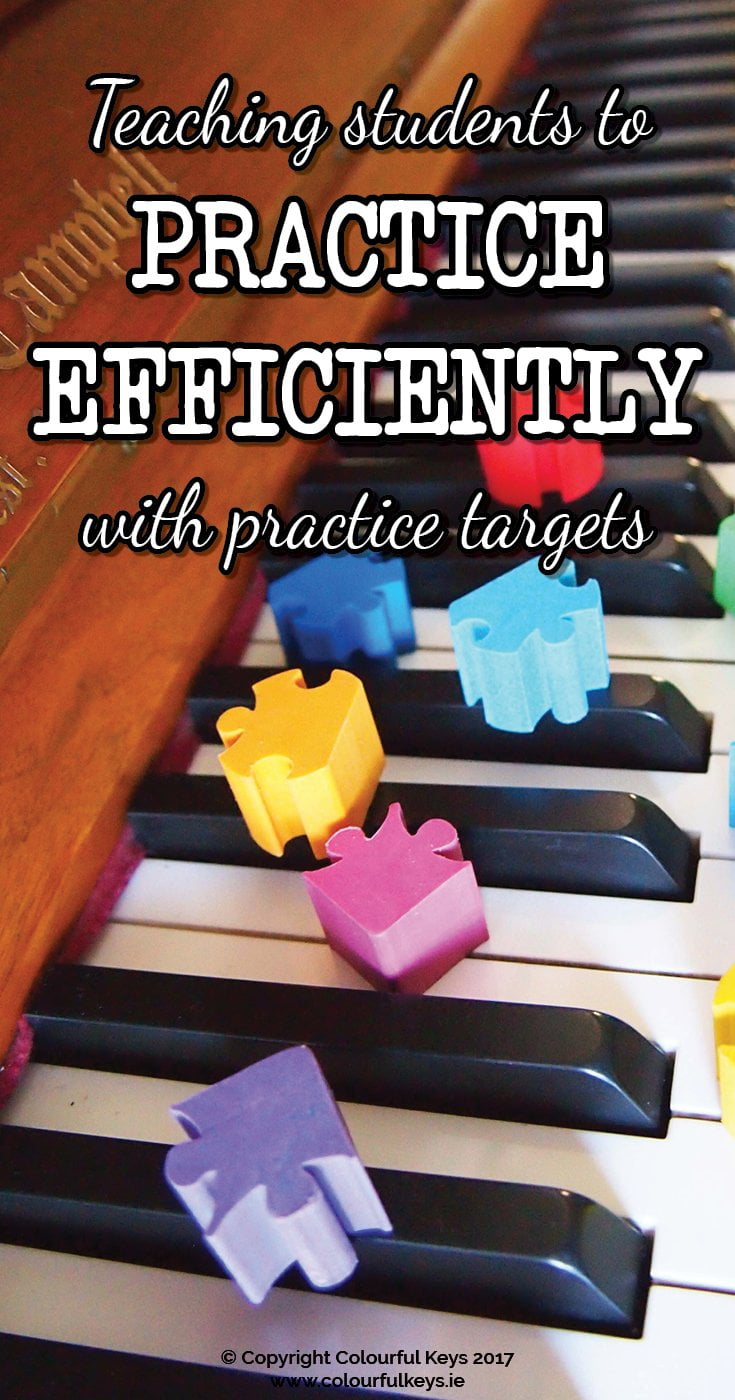
Thanks so much for sharing, Nicola! This is something I’ve been struggling with grasping, and you just gave me the boost I needed!! 😀
Oh that’s great to hear! Thanks Karissa!
Thanks Nicola – perfect timing for this very helpful article. I feel like you had me in mind when you were writing it!
That’s the greatest compliment you can give me Sarah! So happy it was helpful. 🙂
This is the perfect material to let kids know how to practice! Thank you again.
You’re welcome Melanie!
I used this as a goal seething no sheet for just January with my students because I wanted them to reach quick goals and see that they had quick success! I plan to do this each month with them. Next week I will go over the sheet and show them how far they have all come in just 4 weeks!
Awesome! 🙂
Very helpful – I was listening to a podcast where they strung you along saying “in the NEXT episode I’ll explain targeted practicing” and they never did!! Thanks so much for explaining it clearly and helping me to improve my practicing!!!